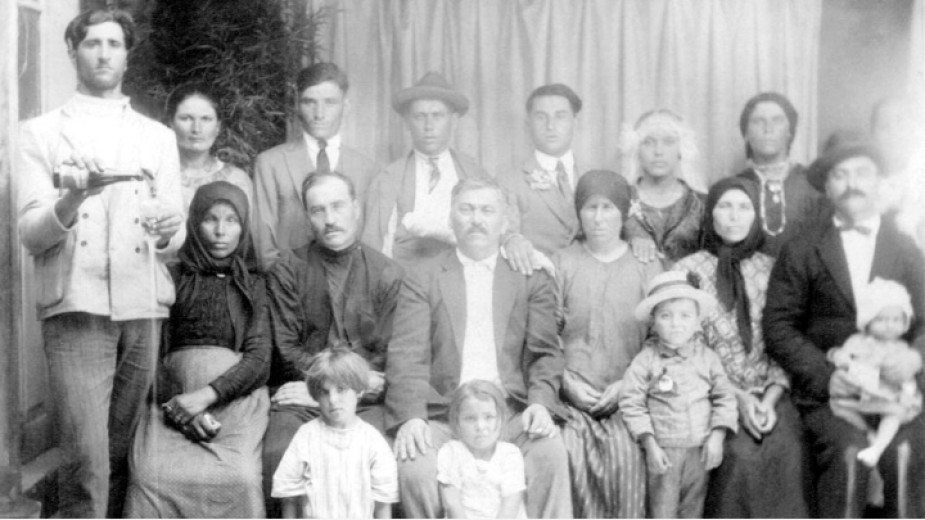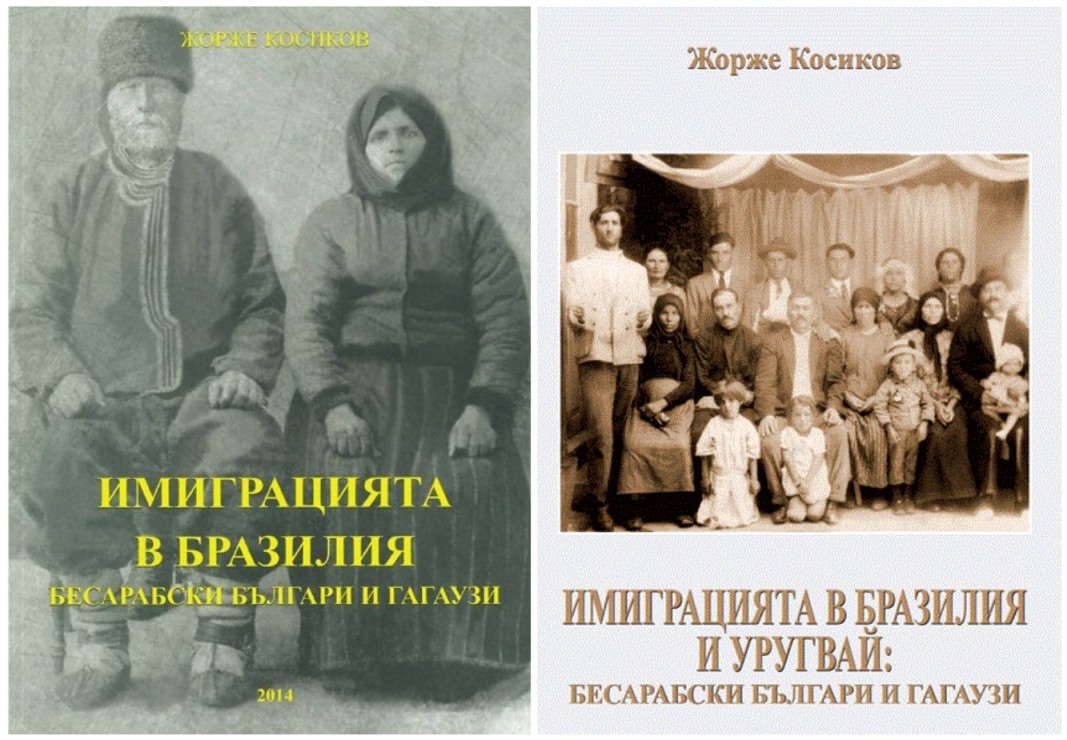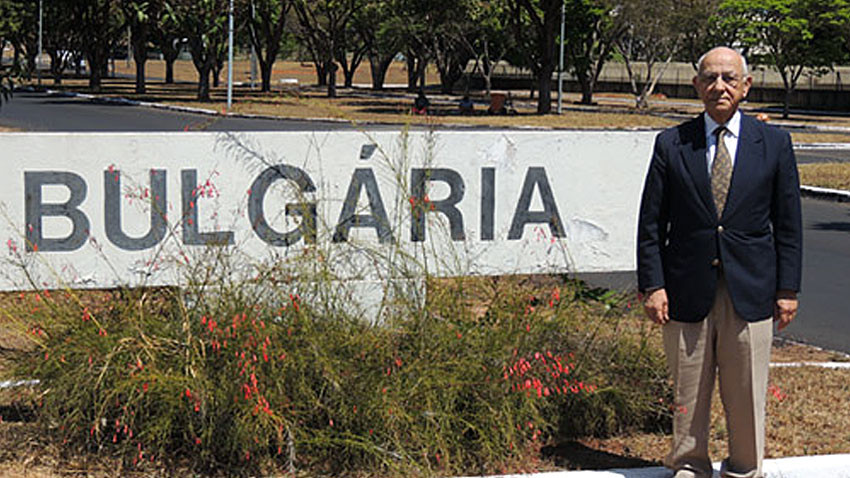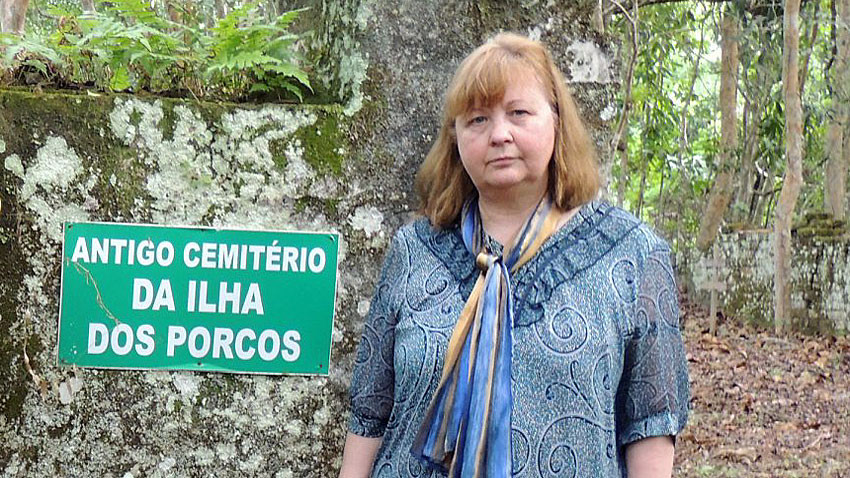 4
4
Most of Bulgarian immigrants to Brazil in the first half of the twentieth century were actually Bessarabian Bulgarians. This is a fact that greatly impressed Maya Daskalova when she translated the book "Immigration in Brazil and Uruguay: Bessarabian Bulgarians and Gagauz" from Portuguese into Bulgarian. The book is part of a trilogy by Jorge Cocicov, dedicated to the history of Bessarabian Bulgarians in Brazil.

The author is a child of Bessarabian Bulgarians who were immigrants to Brazil, so this topic has a special place in his heart. In search of information he became a collector of personal stories, which he later presented in his books. In this way he gives us an invaluable gift by revealing the complete picture of Bessarabian immigration to the South American country. "I have two dreams. One is to publish my books in Bulgaria and the other is to receive Bulgarian citizenship in order to give my children and grandchildren the knowledge that they are Bulgarians,” the writer has told Maya Daskalova.

The great wave of Bessarabian Bulgarians immigrating to Brazil (about 10,000 people) took place in the period 1925-1926, Maya Daskalova says and adds:
"In fact, they first emigrated from Bulgaria and moved to Bessarabia during the Ottoman yoke, mostly as a result of the wars between the Russian Empire and the Ottoman Empire, such as that of 1806-1812 when the treaties included a clause, according to which the Ottoman Empire could send some quotas from the local population to the Russian Empire. At that time Bessarabia was a sparsely populated area, with uncultivated land and the Russian emperor opened the doors and invited whoever wanted to come. Not only Bulgarians, but Poles, Hungarians, Germans, and Jews moved to Bessarabia where they received a piece of land to cultivate.”
But after the First World War, Bessarabia was annexed by Romania, which brought a completely different policy, unfavorable to minorities. It was at this time that slavery came to an end in distant Brazil. The vast plantations previously cultivated by the slaves were left without labor force. The Brazilian government decided to send emissaries to Europe to attract immigrants to fill the gaps in its economy, Maya Daskalova says. In their search the emissaries reached Romania, which allowed them to conduct their campaign there, but under a condition. The campaign should cover only national minorities and visas should be issued only to whole families. Worried by the difficult economic conditions and the fear of a new war and lured by promises that they would receive free land and houses in Brazil, schooling for their children, etc., many Bessarabian Bulgarian families crossed the ocean to find their new home, believing in their lucky star.
"When they arrived by ship at the ports of Rio de Janeiro and Santos, they were taken to the Immigration Boarding House in São Paulo. Landowners arrived there and choose people on almost the same principle as they chose slaves before. The new settlers became white slaves and were sent to the plantations. Interestingly, when a group of 2,000 Bessarabian Bulgarians arrived there, they were warned by their compatriots, who arrived earlier, not to go to the plantations because they would be deceived. The newly arrived Bessarabian Bulgarians revolted and said they would not go to the plantations. Authorities then put everyone on a train and sent them to the Anchieta Island, where they were kept isolated for two months as a punishment. They were left in bad conditions and they were nearly starving."

For two months on the island, 151 people died as 144 of them were children. Death was often caused by starvation, food poisoning and diseases. "When I was working on Jorge Cocicov’s first book and translating this list of children, it was the hardest moment for me because I was literally writing their names, their dates of birth and where they came from with tears in my eyes. I was only comforted by the fact that after so many years we mention their names and through the books of Jorge Cocicov they will not be forgotten," the translator says.
Expect the next part of the story of Bessarabian Bulgarians in Brazil soon.
English version Al. Markov
Photos: nossalucelia.com.br, @bulgaribrasil, archive
The Embassy of Bulgaria in the Arab Republic of Egypt and the Republic of Sudan and the management of the Bulgarian School "St. Cyril and Methodius" in Cairo invite our compatriots to the opening of the 2025/2026 academic year. The event will take..
Today, 57,000 first graders across Bulgaria walked through the school doors for the first time. More than 2,300 schools across the country opened their doors to welcome students on September 15, a BGNES reporter..
An event dedicated to the Bulgarian oil-bearing rose (rosa Damascena) will take place on September 19 in Ireland, BTA reports. Its organizer is the Embassy of Bulgaria in the country. “We are pleased to invite you to a unique journey of sound..
Today, 57,000 first graders across Bulgaria walked through the school doors for the first time. More than 2,300..
The Embassy of Bulgaria in the Arab Republic of Egypt and the Republic of Sudan and the management of the Bulgarian School "St. Cyril and Methodius" in..

+359 2 9336 661
